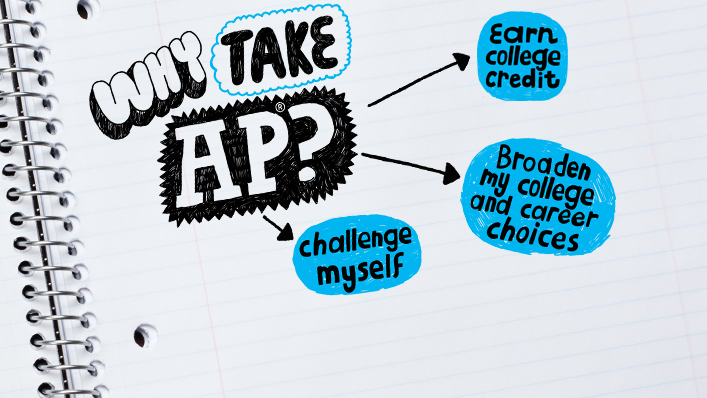SAT testing, extracurriculars, AP courses, prom, applying for jobs, volunteer work, getting your driver’s license, and maintaining friendships. All of these things combine to create the most bittersweet era of the high school experience: the dreaded junior year. As you may know, it’s a lot to handle for one person within just ten months, and it is hands-down, the most difficult year, especially considering you are only a year away from sending in applications to your dream schools.
It almost seems impossible, doesn’t it? Staying involved in sports, clubs and work, while still managing your GPA and preparing yourself to receive good scores on all of your exams to keep yourself as “well-rounded” as possible seems like a task designed just for Wonder Woman. Well as challenging as it is, it is also the most critical era, since several of the decisions that you make as well as the outcomes of this school year will have an essential impact on your near future in regards to your college admissions process. As Ben Marcus once wrote, “The impossible is just a blind spot that dissolves if we move our heads fast enough.” So move your heads quickly and learn to master the wizardry of junior year.

Setting Goals for the School Year
A skill that will doubtlessly help you through the rigorous year as well as through the rest of your college admissions journey is setting specific goals for yourself. If you are reading this as a sophomore or as someone about to enter junior year, then you’re right on time to give yourself a head start. Before you start the year, you should try to prepare yourself a “game plan” on what you intend to do and accomplish within the year. You should make a list of all the classes you’ll take and what grades you hope to get in them, the extracurriculars you’ll be participating in and how much time you think you’ll dedicate to them, standardized testing (SATs and ACTs) dates and how much time you’ll devote to studying, and other things that you plan on doing throughout the course of the ten months (such as applying for jobs, volunteer hours, etc). Keep this plan for when you actually attend school in the fall and begin to keep track of what you accomplish and what you don’t. This will help you manage your time and your tasks. Having a clear physical plan for what you want to do will keep you much more organized and relieve the stress and panic of procrastinating to complete things. However, this idea of a plan/agenda will only work effectively if you are totally consistent and determined to do well, so it is absolutely essential to stay focused.

Course Selection
Choosing the right courses in junior year may seem very difficult at first, since a whole new span of options will be made available to you, and you might not know which ones you’ll need. In terms of electives, you should first think about your high school’s graduation requirements, and check to see if you haven’t yet fulfilled some of the required classes. Those classes are the ones you should definitely make sure you enroll in. You should then consider the possible career field that you might want to work with in the future, and select a class or two that correlate with that field. If you’re not sure about the career path you want to follow yet, try signing up for classes that seem interesting to you; definitely do not choose electives that you think you won’t enjoy or be interested in. Now in terms of the levels of difficulty of your classes, you absolutely want to make sure you make the right decisions. You may feel pressured to take 4-5 honors and AP courses, but in most cases, this probably won’t be the right thing to do. Taking challenging classes is obviously something that you should consider in your junior year, as it is something that college admission offices pay close attention to. However, there is always a limit to the amount of rigor that one can handle. Keep in mind when selecting your courses that you’ll need time throughout your days to do other things such as sports or other extracurricular activities. A good amount of AP classes for junior year might be 2-3, depending on your daily schedule and academic interests. When you’re up at 2:00am finishing your AP Bio paper, there’s no doubt that you’ll thank yourself for not taking on that extra AP course.

Beginning the College Search
If you’re a junior and still don’t know what kinds of colleges and schools you want to go to/ apply to, now is the perfect time to start looking. It’s extremely important that you have, at the very least, a general idea of what schools you are looking for before senior year comes around, as you’ll spend the majority of your first semester and the summer before you’re a senior preparing your applications. It may seem slightly difficult to decide what you want to do with your future when it seems so far away in time, but once you’ve indulged yourself in research, you’ll have a much more distinct image of what you want, and your search will become much simpler. You should start by considering all of the contributing elements: location (in-state or out-of-state), type of school (private/public), size, academic programs, intended major(s), cost, financial aid, etc. Many of these you’ll be able to decide yourself, but some may have to be discussed with your counselor or your family before anything is set in stone. It is important that you take as much time as you need to deeply consider which colleges you’ll apply to so that you’ll make the right decision when choosing which one you’ll attend after you graduate. Do not make any impulsive decisions to apply for a school without doing plenty of research beforehand, and do not wait to start looking.
Time Management
As you’re experiencing your junior year adventure, you’ll realize that time management will become more and more difficult to maintain. One thing to keep in mind in order to avoid this from interfering with your grades and academic performance is to not procrastinate. So be efficient, put all distractions aside, complete your work on time, get your projects out of the way, and have all the leisure time you need when you're finished. Trust me on this; it's a lot more satisfying to relax knowing that you've finished all your school work for the day. Try your best to balance school work, extracurriculars, and personal free time. A great tool to keep track of all of your assignments is The HW App, which is available in the Apple Store.

Your Best Friends: Your Counselor and Teachers
Keeping in contact with your counselor and your teachers throughout this year is crucial to your application journey, since these are the people that will be writing your recommendation letters required in your college and scholarship applications. Frequently visiting your counselor to discuss college plans will show him/her that you are serious about getting a higher education, and will give him/her more great things to write about if they decide to write you a letter. Counselors are also one of the best college and education resources that you'll ever have, they'll tell you anything that you need to know about the schools you want to attend, the careers you intend on pursuing, and the classes you'll need to take in high school to get where you want to be. So never be afraid to consult with them and build relationships with them! It's also important that you stay on your teachers’ good sides, since they are the people that observe your dedication and hard work in the classroom, which is something colleges really consider when looking through applications. Remember that although it may not always seem like it, your school’s faculty is always on your side, and will do anything to help you become what you aspire to be.
Self-Motivation and Effort
You will only succeed as far as you’ll allow yourself to be pushed. Being your own number one supporter and motivator is a major key to tackling obstacles such as junior year. You must make yourself want to do well and want to succeed; you won’t get as far as you are able to by telling yourself that you need to do things. You have to want to do them. Put all the effort that you have into each and every one of your assignments, and constantly remind yourself that you’ll succeed if you try your best. Yes, it will be very tiring and time-consuming, and sometimes you’ll want to just BS all of your assignments and take a nap. But keep in mind that hard work will always pay off. Not only will self-dedication help you through the year, it will help you to strive to do better in all of your life obstacles that await your future. You do not want to look back your senior year regretting your grade in a class that lowered your GPA, or disrespecting a potential recommendation letter writer.
So Maybe it’s Not that Hard
Maybe referring to this year as some mysterious sorcery is a bit of an exaggeration. It may seem that way at first, but trust me, you’ll get through it. It’s all a matter of consistency, perseverance, and hard work. As long as you stay focused and keep your goals in mind, you won’t need a magic wand to keep you sane.
WANT TO LEARN MORE ABOUT COLLEGE ADMISSIONS? CHECK OUT THE YGITW BOOK HERE!
LOOKING FOR A HIGH SCHOOL OR COLLEGE INTERNSHIP? APPLY HERE!
Photo Credit:
http://static1.squarespace.com/static/55aedc93e4b03fe010a8b0ab/t/55f845b0e4b0f5e40ea714f7/1442334133985/goals
http://www.theshare.cn/article/detailp/2994
http://fosteredu.pennfoster.edu/a-closer-look-at-how-the-guidance-counselor-crisis-affects-students









 Whenever you are in doubt of yourself, recall this advice and the fact that standardized tests do not measure your worth as a human being. You are so much more than the answers that you bubble in inside of a testing room. As long as you try your best, it is impossible for you to be labeled as a disappointment. You have so much more to contribute to the world, and as long as you are determined and assert yourself, you are definitely bound to make changes in it.
Whenever you are in doubt of yourself, recall this advice and the fact that standardized tests do not measure your worth as a human being. You are so much more than the answers that you bubble in inside of a testing room. As long as you try your best, it is impossible for you to be labeled as a disappointment. You have so much more to contribute to the world, and as long as you are determined and assert yourself, you are definitely bound to make changes in it.





